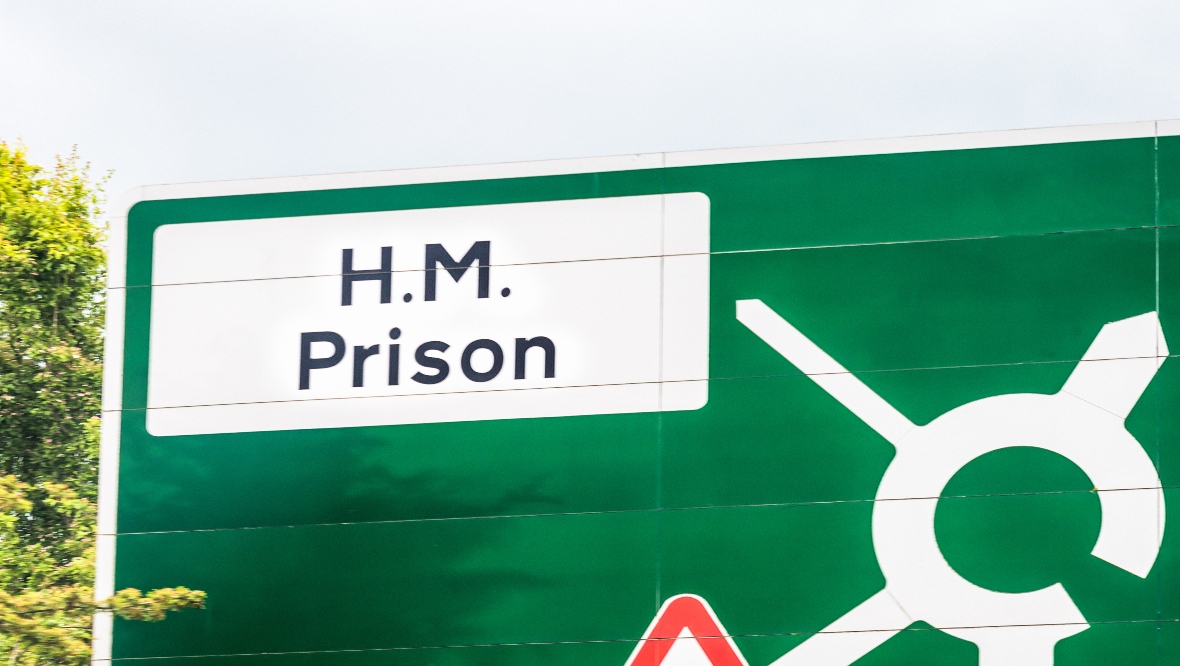New legislation to propose changes to imprisonment in Scotland could “cut crime and reoffending, and create fewer victims”, according to proposals.
The Bail and Release from Custody (Scotland) Bill was published on Thursday, and proposes a “refocus” on how bail is used.
The bill emphasises that remand must be reserved for people who pose a threat to themselves or those around them, as well as those who fail to turn up for their trials, in order to ensure justice for victims and prevent reoffending.
It also aims to give a greater focus to the rehabilitation and reintegration of people leaving prison to help them resettle in their communities.
The publication was informed by a 12-week public consultation seeking views on how custody should be used in a modern and progressive society.
It also emphasises that the concept of victim safety includes considerations of both physical and mental harm to the victim.
The proposed changes are designed to lead to greater public protection and victim safety and are intended to reduce crime, reoffending and victimisation.
Cabinet secretary for justice and veterans, Keith Brown, said that “there will be a continued focus on cutting crime and reoffending and creating fewer victims”, and that the Government’s ongoing approach was working, with “reconviction rates and recorded crime at historically low levels.”
Proposals include the publication of new national standards to support people leaving prison, ending release on a Friday or the day before a public holiday so people are better able to access support, and a new test the court needs to apply when deciding whether to refuse bail and to remand accused persons in custody.
The bill will also enable the provision of information about prisoner release to victims’ organisations to inform the support they provide and will explicitly recognise complainer safety as a specific factor in how the court makes decisions on bail.
Brown said: “We know that short-term imprisonment in particular disrupts families and communities, adversely affecting health, employment opportunities and housing – the very things that we know prevent reoffending.
“This Bill recognises prison will always be necessary for the most serious cases, but we need to look again at how custody is used. The Bill sets out proposals which will refocus the use of remand and support the rehabilitation and reintegration of people leaving custody, for example through improved release planning and support.
“This is an important step in the Scottish Government’s commitment to transforming the justice sector and a commitment to refocus how imprisonment is used.
“I visited HMP Edinburgh to witness the excellent work the Scottish Prison Service is doing to prepare people to return to their communities, including supporting recovery from addiction. The bill aims to build on that excellent work, providing further opportunities to support reintegration.”
Scottish Conservatives have, however, called the SNP bill a “reckless” proposal that would “endanger public safety”.
Shadow cabinet secretary for justice, Jamie Greene MSP, said: “This reckless bill is designed to empty Scotland’s prisons at a time when violent and serious crime is rising. It risks endangering public safety and frankly is an insult to victims of crime.
“As well as giving SNP ministers sweeping powers to release prisoners early without parliamentary scrutiny, a blanket move to increase the number given bail is complete madness.
“In the past three years more than 30,000 crimes were committed by offenders on bail. That’s one in eight of all crimes – including 29 murders or homicides.
“Thankfully the SNP have responded to pressure from the Scottish Conservatives, judges and the wider public and ditched their crazy proposal to reduce the point of automatic early release of prisoners from the halfway point of their sentence to just a third.
“Many respondents in the Bill’s consultation wanted to see automatic early release ended altogether – as we do. Nicola Sturgeon once vowed to do this too, but clearly has no intention of doing so now.
“This Bill is further proof of the SNP’s soft-touch approach to justice at a time when they should be getting tougher due to rising violent crime levels.
“Once again we see legislation which seems to serve the needs of offenders and ministers rather than victims. It is the latter who should be at the heart of the justice system, which is why the Scottish Conservatives will continue to push our Victims Law.”
Follow STV News on WhatsApp
Scan the QR code on your mobile device for all the latest news from around the country


 iStock
iStock
























